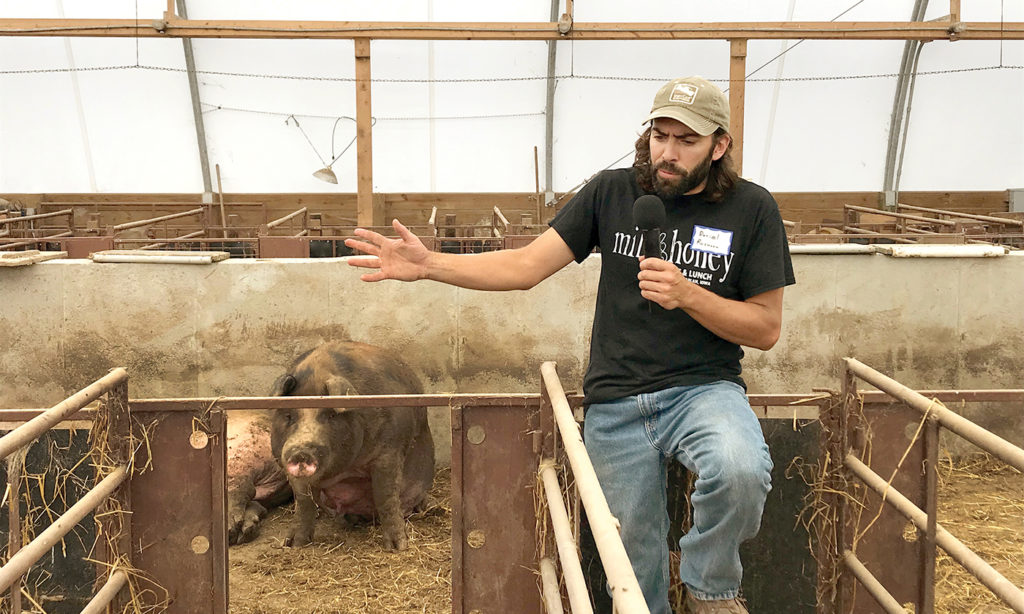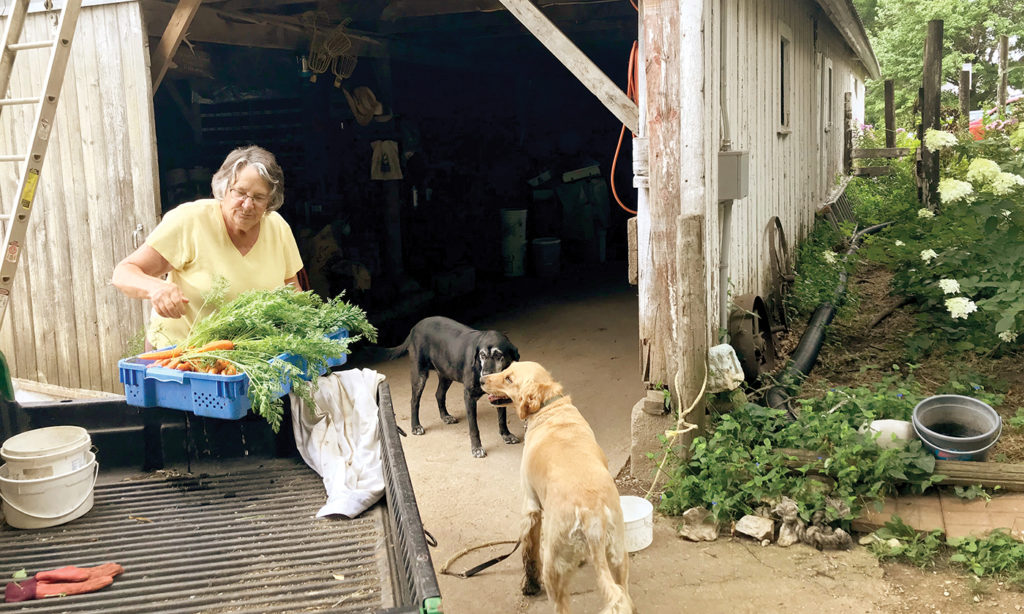“Welcoming everybody to his farm on a searing August afternoon, Ron Rosmann lets the pleasantries go for 12 minutes before getting to the heart of things. Around him, about 70 growers sit like school kids on bales of hay, braced to hear him.
Rosmann has been farming organically for 36 years on western Iowa’s fertile hills, and his voice is as gravelly as the road that runs alongside his land. You might think farming without pesticides would get easier over time, but you’d be wrong. An impossibly rainy planting season and runaway giant ragweed have made this year his toughest yet.
“What are we experiencing?” he asks the group. “Warmer temperatures, more rainfall, warmer nights, 10 years in a row of cold, wet springs. I’m getting more and more nervous.”
The growers, all members of Practical Farmers of Iowa, or PFI, are here to learn how Rosmann copes. A rare alliance of organic and conventional farmers, their views on climate change run the gamut of opinion. They meet on different farms around the state to share practices and today have come out for a “field day” to observe how Rosmann and his family produce beef, pork, chickens, eggs, popcorn, and grains on 700 acres—without chemicals.

While long-term climate change is prompting growing activism, farmers like these often register its near-term effects first. It contributes to soil erosion and severe weather events. It has increased annual precipitation in Iowa at least 8% over the past century, according to the state Department of Natural Resources. And the effects keep multiplying.
The field day includes a hayrack tour of the Rosmanns’ pesticide-free fields. On one section, turnips are planted as a cover crop, and volunteer oats and barley also pop up. Down the road, the group visits naturally ventilated “hoop house” pig shelters: metal arcs covered with greenhouse plastic, in which deep cornstalk bedding decreases manure runoff risk. They stand in front of long compost mounds, where butterflies land as Rosmann describes how to balance straw and manure. The farmers end their tour back in the barn, dining on the Rosmanns’ organic coleslaw and pulled-pork sandwiches.”
Read more about Ron and Maria Rossman’s story here!


Recent Comments